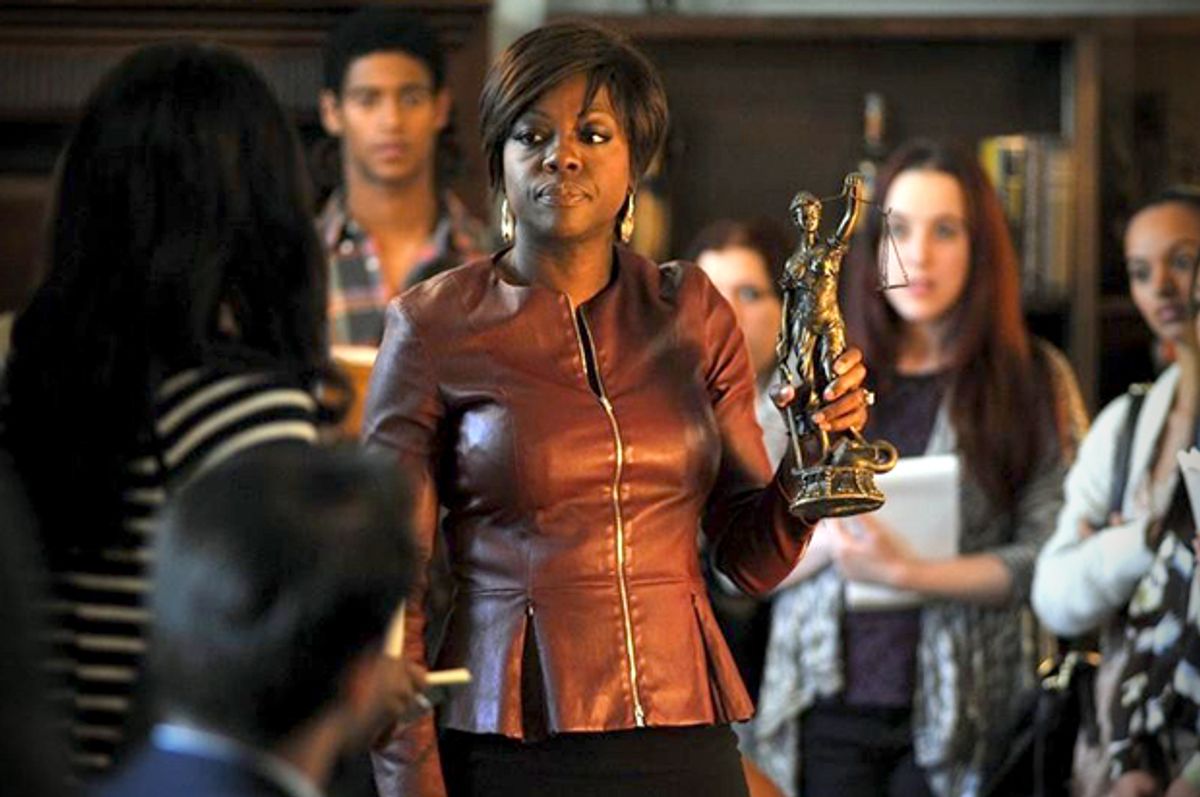The New York Times has always been befuddling in the way it covers television; the paper that could potentially attract any of the most talented writers in America -- and has, covering fields as disparate as film, books and pop music -- has effectively punted on TV criticism, leaving it to a writer who seems not to know or care much about the medium. But Alessandra Stanley's piece, today, about "How to Get Away With Murder" isn't error-riddled. It's flat-out offensive in how it treats Viola Davis, the show's star, and Shonda Rhimes, its producer.
The problems start in the piece's very first sentence: "When Shonda Rhimes writes her autobiography, it should be called 'How to Get Away With Being an Angry Black Woman.'" Huh? Reducing Rhimes -- and those of her characters that are black women -- to one-dimensional "anger" isn't just counterfactual, it plays into legitimately offensive stereotypes of which Stanley is aware. She cites the specter of the "angry black woman" caricature as she says Rhimes has "recast it in her own image and made it enviable."
There is a lot going on here, but saying that Rhimes' characters are angry and based on Rhimes is wrong in the first particular and unprovable in the second. (Who cares whether Rhimes' characters are based on her?) And, in particular, Olivia Pope, the central character in ABC's hit "Scandal," goes through life not angry but serenely competent. Stanley's reading of "Scandal" makes no sense, with Olivia described as angry in a world where race is never, ever discussed -- "But even when her heroine is the only nonwhite person in the room," Stanley writes, "it is the last thing she or anyone around her notices or cares about." Olivia's race has not held her back from achieving in her field, it's true, but her race is often explicitly or implicitly commented on, as when a potential client misidentifies Olivia as someone's personal assistant because of her race, or in references to the Jefferson/Hemings dynamic between Olivia and the white U.S. president. Stanley has the equation exactly reversed -- it's not that Rhimes' characters are angry in a world where no one "notices or cares about" race. It's that they manage to keep their cool in a world, one like ours, where race is real. As Rhimes herself tweeted this morning, her white characters who "rant," as Stanley put it, aren't characterized as angry. (She also got a dig in at Stanley for misidentifying her as the creator of "How to Get Away With Murder," a show she merely produces.)
[embedtweet id="512970400083750912"]
[embedtweet id="512968959394856960"]
The framing of the piece, even aside from the question of Stanley's understanding of "Scandal," is extremely troubling. Viola Davis is described as "sexual and even sexy, in a slightly menacing way" the sentence before Stanley describes her as "darker-skinned and less classically beautiful" than Kerry Washington, of "Scandal." Is the point here to pit two women of color against one another in a totally gratuitous beauty contest, to signal-boost white standards of "classical" beauty, or to indicate the degree to which dark-skinned women's sexuality is menacing? I can't keep track!
When one wends through the many, many random references (everything from Sherri Shepherd's guest spot on "How I Met Your Mother" to the "Scandal"-themed fashion line at the Limited), the piece seems to be arguing: There are black women on TV, and they're no longer just playing characters subservient to white people's whims. OK? Seems like fairly thin gruel to sustain so many strange assertions and offensive play with charged language. Besides, it may merit a correction of sorts: When characters like Olivia Pope can be wildly misread by prominent white critics, at length, in the paper of record, how far have Rhimes' shows brought us?

Shares